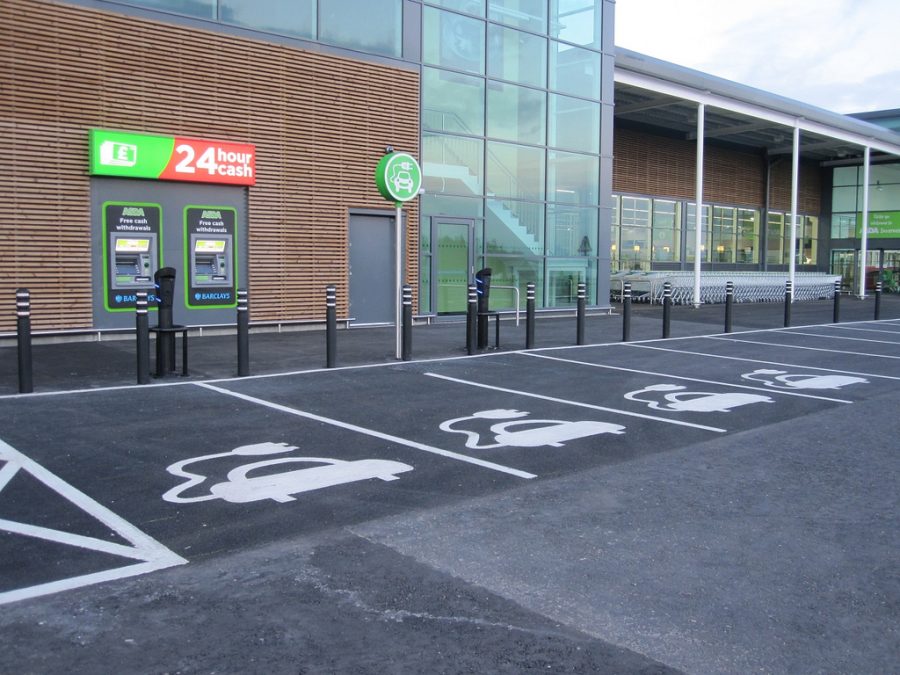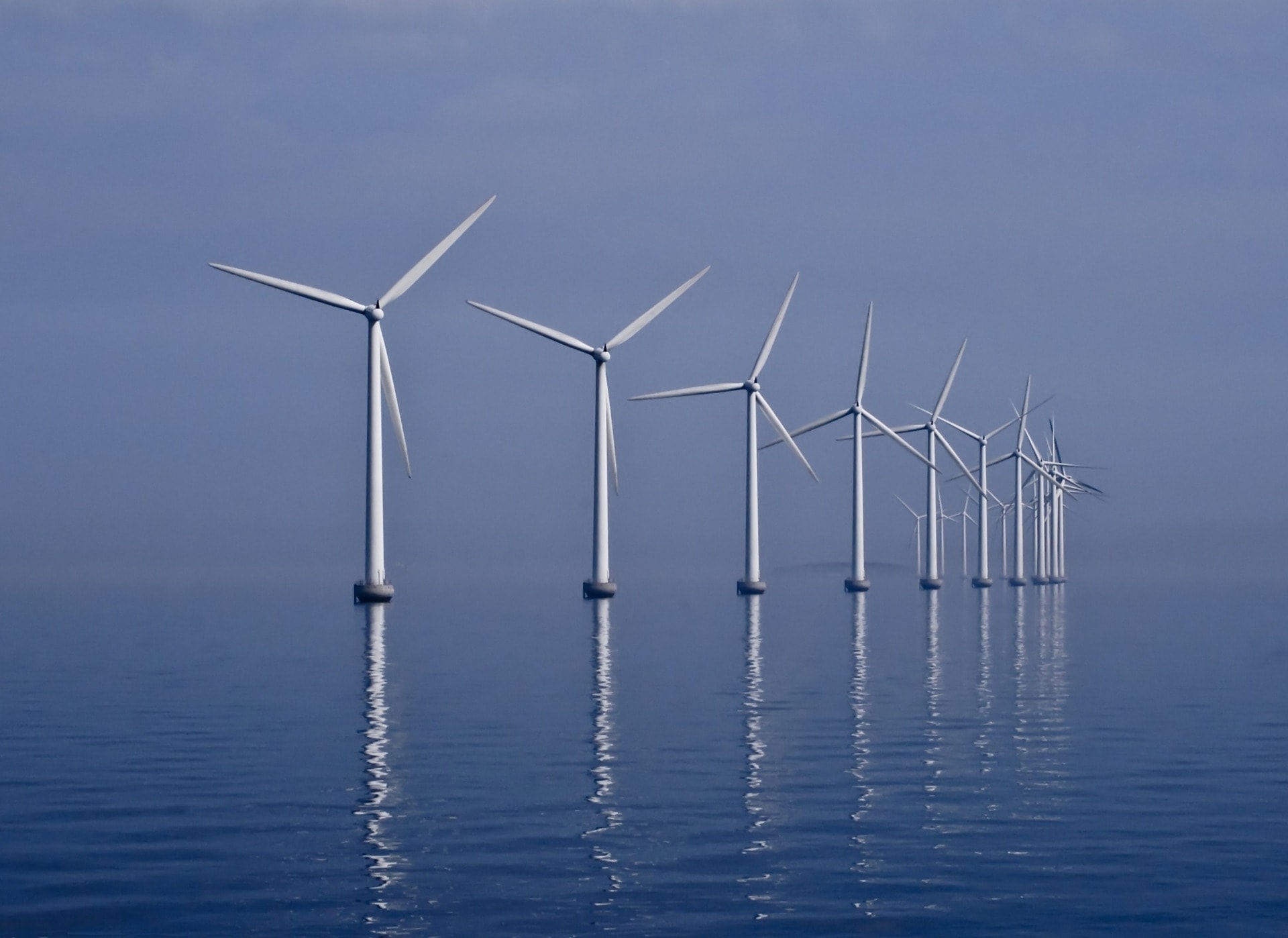Part of Seedrs’ fundraising efforts is the Sustainable Accelerator, led by Sustainable Ventures. Over the years, the Sustainable Accelerator’s team has developed a portfolio of sustainable and innovative start-ups selecting among the best in the United Kingdom. At the moment, the Sustainable Accelerator is planning to invest between £50k – £250k into around 10 high-potential sustainability businesses, as well as provide mentorship and guidance. To be chosen, companies need to be sustainable, have significant potential and an innovative business model. The Sustainable accelerator offers them a one-year program where participating start-up will have access to deep sectoral and practical expertise as well as guidance from the Sustainable Venture management. All these, together with networking will help sustainable start-ups to enter and succeed in the market.
Andrew Wordsworth is the Managing Director of Sustainable Ventures and he has accepted to speak with us about this incredible project: the Sustainable Accelerator.
How did you create the Sustainable Accelerator? How did it all begin?
Andrew Wordsworth: We have a background in starting and launching ventures in particular sectors, specifically in the low carbon economy. Having exited E-Car in 2015 we were looking for ways to take our own ideas to start our own businesses, and see how we could expand and work with a wider range of companies. We looked at other accelerator programs particularly in the UK, including organisations like Tech Stars, and also looking at how things like Y Combinator in the States and Entrepreneur First work. And what we realised was that there was nothing, no investment / support programme focused on our particular sectors – the sustainability area. There just wasn’t that level of support available. We realised it was an opportunity for us to apply our skills and expertise and interest, as well as hit a gap in the market.
IN THE PHOTO: NATURE PHOTO CREDIT: CHRIS A1995
Have you found it difficult to convince people to invest in sustainable products/start-ups?
AW: I think our view is that our area of impact is no longer a niche investment area, it is actually becoming more mainstream. If you look forwards in terms of the products and services corporates are buying, the companies and acquisitions that we are seeing, it will be a natural exit route for companies – even including the big utilities companies. By definition, there is going to have to be sustainability built into them. In the same way that a lot of companies engage in impact and impact investing, they are moving away from seeing impact as CSR, or as “nice-to-have”, to having it as a core, fundamental practice. This sort of broad shift creates a huge amount of investment opportunity simply because the old way of doing things is no longer going to hold.
Who are the people you are working with? Is it mainly young people involved in this or older as well?
AW: Yes, if you think about it, ten years ago a lot of companies in the space were very much focused on renewables or recycling, looking at high capital investments, thus being a quite traditional, very engineering-led kind of businesses. I think what we see now, particularly with the movement towards a circular economy, is looking at things like the sharing economy. Or thinking about resource efficiency, and how we can do more with less. Very much web-enabled businesses or app businesses which all are the services millennials and younger populations are looking to buy into or to grow. But also, obviously you don’t need to have done twenty years in a big engineering firm to understand that. So, a lot of what we see now is younger founders, people who have perhaps finished their PhDs, are actually sort of wanting to move into the next step. This is great as we can bring experience to them having done this already for a number of years and really add value to those businesses. This allows you both to get some energy. We can also say that we have learned from a lot of mistakes along the way, so we can help them to avoid similar kinds of things. It is actually quite exciting the number of start-ups on the scene, particularly in the London area. And again, focusing on these new sectors rather than just straight-forward tech – whether that means better ways of shopping, or better ways of doing things. People are really motivated to make a difference to the world as well as grow a valuable business.
I have seen you are focusing on different categories of start-ups including circular economy, future utilities and social impact. Which category is getting the most proposals? Are there any of particular interest that you would like to share with Impakter?
AW: I think on this one, because we got a £300,000 investment from the London Waste and Recycling Board who acted like an anchor investor, much like they did for Bitcoin Storm, so the circular economy is going to be an area we think we are going to be quite excited about because not only will the Board be an investment partner but we will also be working with them and the links that they have, being well-established and tapped into the areas of materials efficiency, food waste, building materials efficiency, and all those areas where we can give a strong instant network. An area that is rapidly emerging within the context of the circular economy is the sharing economy. You have the classic Airbnb as an example. And we have experience setting up and exiting the E-Car Club, which is a car sharing club. We understand that particular market sector and I think we can apply that to other things. The other area that I would say outside of that is what we call future utility – this entails thinking about the distribution of energy through smart grid and storage as well as microgeneration linked with battery storage. The future of this whole sector is potentially blockchain to enable peer-to-peer micro trading of electricity. You can see that the whole sector is shifting and it is a big shift going on, creating an immense number of opportunities for small companies to grow, to build, to get technology in place, and then to potentially exit. Those are the two areas where we are seeing the most interesting activity at the moment. However, in the area of social impact, a number of our businesses that we’ve already found have impact investment into them. E-Car, for example, had The Knight Fund as its big institutional investor. So with circular economy and future utility, social impact is another one of our main areas.

IN THE PHOTO: ELECTRIC CAR CHARGING SPACE PHOTO CREDIT : GLENN WALLACE
Do any of your projects involve developing countries? Are you interested in pushing more towards these countries?
AW: Through this programme we made links to a number of investment networks and firms who are very much focused on taking technologies being developed, in a way that is applicable to developing countries. So whether these are people from perhaps Brazil, or India, or Bangladesh, or Africa, they are all looking for new ways to approach energy usage where there are not established grids or distribution networks. This can really empower people in those areas. So it’s a big focus; if we can get to a use of eight or so companies in there, we fully expect that the end market of some of these will be in developing nations.
Are you thinking about bringing the Sustainable Accelerator to these countries?
AW: Our vision is that we will repeat this almost every year, and it might be that we find a lead investor who has a focus on technology for developing countries. We can adjust our selection criteria and create these clusters of companies that all have similar problems or similar market access challenges, and package those up. Our job is to pull the right network around those groups of companies.
Do you get support from the UK Government?
AW: There is no direct money into the Accelerator fund itself from the UK Government, however we have identified that there are quite a lot of grants at the UK and EU levels that are focused on helping companies that are looking to solve societal challenges. Within the UK, we think there is about £100 million of grant money that is specifically targeted at companies that are looking to solve and transform future cities, looking at energy storage for example or transforming the grid; so you’ll see a far high proportion of these coming from fintech or adtech. We’ve got a good track record in terms of leveraging grant money into the companies because we’ve invested in it before. This not only brings partners, but leverages the investor’s money. It should be a win-win for everybody.
My personal belief is that the only way we’re going to transport to a sustainable future, to solve issues like climate change or resource shortages, has to be driven by small company innovation. We have good relationships with the people who are running these grant programmes, and this is what they’re trying to encourage as well. We are creating jobs, and we are attacking climate change. That’s the great thing about this sector. It solves a lot without compromising on investment returns or the delivery of public sector objectives.
















